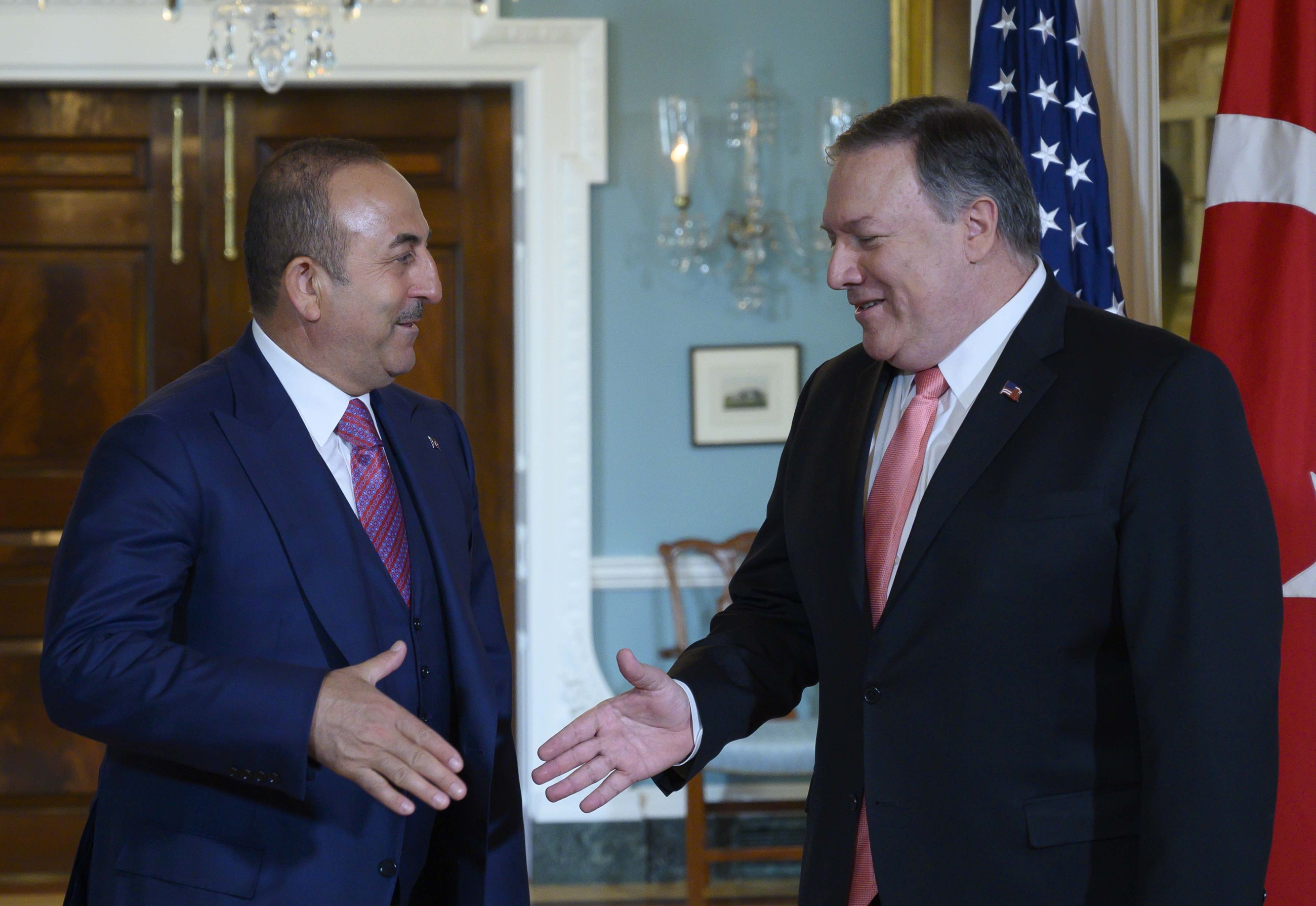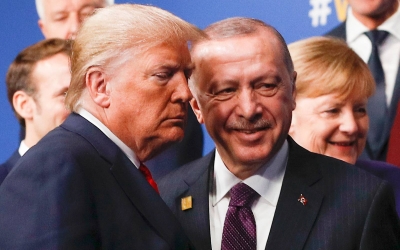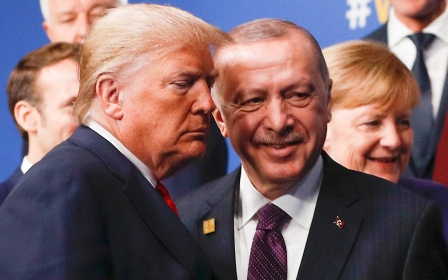EXCLUSIVE: Turkish foreign minister to snub Pompeo during Istanbul visit

Turkish Foreign Minister Mevlut Cavusoglu has decided not to hold a meeting with Mike Pompeo, who is due to visit Istanbul next week, because the US secretary of state refused to visit Ankara, Middle East Eye can reveal.
Turkish officials have long demanded a bilateral visit from Pompeo, who has been in the region several times but skipped Turkey.
Less than three months before President-elect Joe Biden's new administration assumes office, Pompeo will now include Turkey in his 13-23 November trip to the Middle East, where he will also meet officials in six other states, including Israel, Saudi Arabia and the UAE.
However, Pompeo's aides told their Turkish counterparts that the secretary of state wasn’t aiming to pay a bilateral visit to Ankara, but rather meet Orthodox Patriarch Bartholomew I.
A press release by the State Department said Pompeo was going to visit Istanbul to discuss religious issues in Turkey and the region and to promote a strong stance on religious freedom around the world, a reference many believe to be to Turkey's recent decision to reconvert the Hagia Sophia into a mosque.
“Turkish officials made clear that Cavusoglu wouldn’t meet Pompeo unless he comes to Ankara for an official visit,” one person familiar with the issue told MEE.
“Americans maintain that Pompeo’s agenda is too packed and he couldn’t make space for Ankara. They wanted to have a meeting [with Cavusoglu] in Istanbul, which isn't going to happen.”
Domestic support
Except for an emergency trip with Vice President Mike Pence to stop a Turkish offensive in northern Syria against US-backed Kurds last year, Pompeo has never paid a bilateral visit to Ankara, even though he has been in the region on many occasions.
In contrast, since he assumed office, Pompeo has paid two separate visits to Greece, where he announced a significant deepening of Washington's ties with Athens, including military deployments amid rising tensions with Turkey in the eastern Mediterranean.
The USS Hershel "Woody" Williams was dispatched to Souda Bay in Crete last October, the first expeditionary sea base vessel sent abroad by the US Navy in 40 years.
Pompeo also raised eyebrows in Ankara by failing to abide by the longstanding precedent of meeting the leaders of the Turkish Cypriot community when he visited Cyprus in September.
'Naturally, Cavusoglu decided to snub him, since Pompeo will soon be leaving office anyway'
- Source
Turkish officials have subsequently publicly declared that Pompeo had lost his impartiality in the eastern Mediterranean, a role forged by policies of several previous Republican and Democratic administrations.
Turkish officials on many different occasions called on Pompeo to make an official visit to Ankara. A second individual familiar with the discussions said Pompeo had always preferred to meet Cavusoglu on the margins of summits elsewhere.
“Naturally, Cavusoglu decided to snub him, since Pompeo will soon be leaving office anyway,” the individual said.
Turkish officials believe Pompeo's moves regarding Greece and his slated visit to Istanbul are an effort to garner Greek and evangelical support domestically, as the outgoing secretary of state is likely to run for the Senate in Kansas once Trump is out of office.
Pompeo’s alleged dislike of Turkey and its leaders is renowned.
In 2016, immediately after a coup attempt in Turkey, he tweeted on his now deleted official account: “.@JZarif & #Iran govt about as democratic as that of @RT_Erdogan - both are totalitarian Islamist dictatorships.”
Middle East Eye delivers independent and unrivalled coverage and analysis of the Middle East, North Africa and beyond. To learn more about republishing this content and the associated fees, please fill out this form. More about MEE can be found here.





